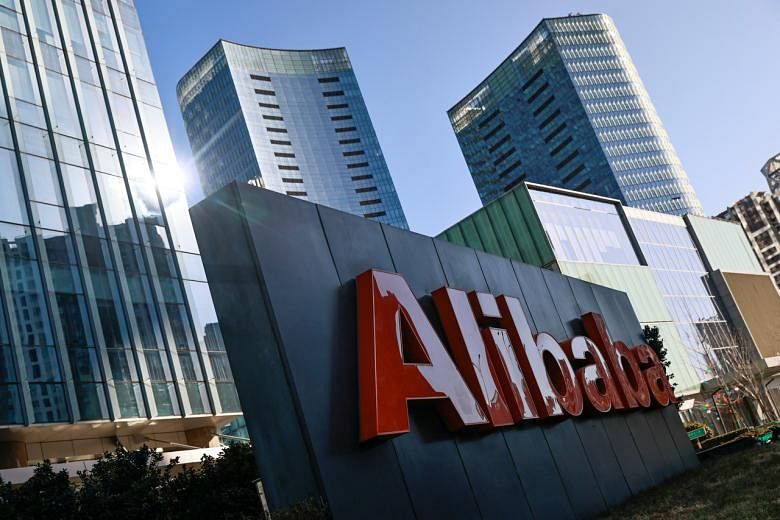HONG KONG - The Chinese government has asked Alibaba Group Holdings to substantially shed its media assets as officials grow concerned about the technology giant's hold over public opinion in the country.
It is unclear if United States-listed Alibaba must sell all its media assets but approval is needed from Beijing of any plan it comes up with, The Wall Street Journal reported, citing people familiar with the matter.
The article said discussions over the matter have been held since early this year, after Chinese regulators reviewed a list of media assets owned by the Hangzhou-headquartered company, whose mainstay business is online retail.
Chinese officials were reportedly appalled at the breadth of Alibaba's reach through its media interests and asked the group to come up with a plan to significantly reduce its media holdings, the people said.
The group, founded by billionaire Jack Ma, has amassed media assets that span print, broadcast, digital, social media and advertising.
It has come under closer scrutiny in recent months, during which Mr Ma has mostly disappeared from the public eye.
Alibaba has stakes in the Twitter-like Weibo platform, several popular Chinese digital and print news outlets, as well as the well-read English-language newspaper South China Morning Post (SCMP) in Hong Kong. Several of these holdings are in US-listed companies.
These are viewed unfavourably by the Chinese Communist Party and its own powerful propaganda apparatus, the WSJ report said, adding that the party's propaganda department did not respond to queries.
Alibaba has declined to comment. In a statement to WSJ, the company said it is a passive financial investor in media assets.
"The purpose of our investments in these companies is to provide technology support for their business upgrade and drive commercial synergies with our core commerce businesses. We do not intervene or get involved in the companies' day-to-day operations or editorial decisions," the group said.
It is understood that the news came as a surprise to the SCMP editorial team. When contacted, its spokesman said: "The South China Morning Post has no operational integration with Alibaba and editorial decisions are made independently within SCMP."
In December 2015, Alibaba agreed to a US$266 million deal to acquire SCMP and other media assets in an all-cash purchase from Malaysian tycoon Robert Kuok, who had owned the paper since 1993.
Back then, the SCMP Group had cited an "uncertain" future for traditional publishing as a key reason for the sale. It also said Alibaba would likely be able to "unlock greater value" from the business.
Besides the Chinese tech giant's media and online retail arms, Alibaba also has a sizeable entertainment division that is made up largely of Hong Kong-listed Alibaba Pictures Group and Youku Tudou - one of China's largest video-streaming platforms.
The article said concerns have grown in recent years over Alibaba's media clout and how the company may have leveraged its investments in news and social media to influence government policies deemed unfavourable to its businesses.
The asset-disposal discussions are coming in the wake of run-ins between Beijing and Mr Ma.
Late last year, Chinese leader Xi Jinping personally scuttled plans by Ant Group to launch what would have been the world's largest initial public offering in both Hong Kong and Shanghai.
This, as there has been increasing unease in Beijing over Ant's complex ownership structure and the risks the company - Alibaba's fintech subsidiary - could add to the Chinese financial system.
President Xi was said to be angered with Mr Ma for criticising his efforts to strengthen financial oversight.
Antitrust regulators are now preparing to levy a record fine in excess of US$975 million (S$1.3 billion) over what they call anti- competitive practices on Alibaba's e-commerce platforms.
Alibaba is also said to be required to end a practice forbidding merchants from selling goods on both Alibaba and rival platforms.


